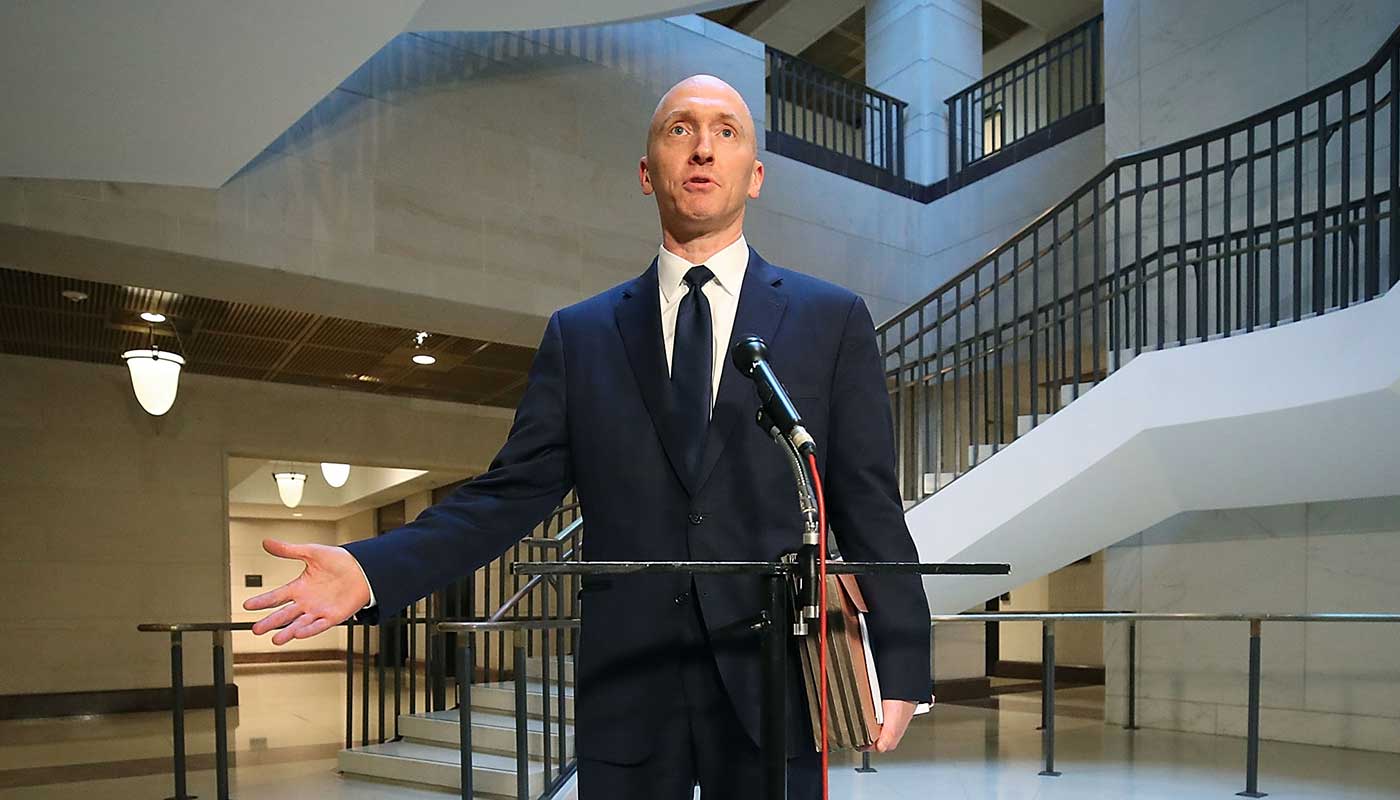Why has former Trump aide Carter Page been accused of being a Russian agent?
Carter Page denies claims following release of investigators’ documents

A free daily email with the biggest news stories of the day – and the best features from TheWeek.com
You are now subscribed
Your newsletter sign-up was successful
A former aide to Donald Trump’s presidential campaign has been forced to deny that he worked as an agent for Russian intelligence, following the release of previously classified surveillance applications.
According to documents obtained by journalists under the US Freedom of Information act, former Trump campaign foreign policy adviser Carter Page has been investigated by the FBI under the Foreign Intelligence Surveillance Act (Fisa).
“The FBI believes that Page has been collaborating and conspiring with the Russian government,” the application says, adding that “there is probable cause that such activities involve or are about to involve violations of the criminal statutes of the United States.”
The Week
Escape your echo chamber. Get the facts behind the news, plus analysis from multiple perspectives.

Sign up for The Week's Free Newsletters
From our morning news briefing to a weekly Good News Newsletter, get the best of The Week delivered directly to your inbox.
From our morning news briefing to a weekly Good News Newsletter, get the best of The Week delivered directly to your inbox.
Page has categorically denied the accusations, appearing on CNN’s State of the Union to proclaim his innocence and restate that he has not been charged with any crime, despite being investigated by the FBI for more than two years.
“You talk about misleading the courts, it's just so misleading,” Page said about the warrants, adding: “It’s literally a complete joke.”
However, Page declined to directly answer direct questions over relationships he had with Russian officials four times during the interview with CNN’s Jake Tapper, and would not elaborate on a letter he wrote in August 2013, obtained by Time Magazine, in which he referred to himself as an “informal adviser to the Kremlin”.
The Washington Post says that the release of the 412 pages of documents, despite them being heavily redacted, was “extraordinary and historic”, noting that in the 40 years that Fisa has been in effect, it is unclear whether any such documents have ever been handed over previously.
A free daily email with the biggest news stories of the day – and the best features from TheWeek.com
Donald Trump seized on the release of the Fisa application over the weekend, taking the opportunity to accuse his own government of serious malpractice.
“As usual [the documents] are ridiculously heavily redacted but confirm with little doubt that the Department of ‘Justice’ and FBI misled the courts. Witch Hunt Rigged, a Scam!” Trump said.